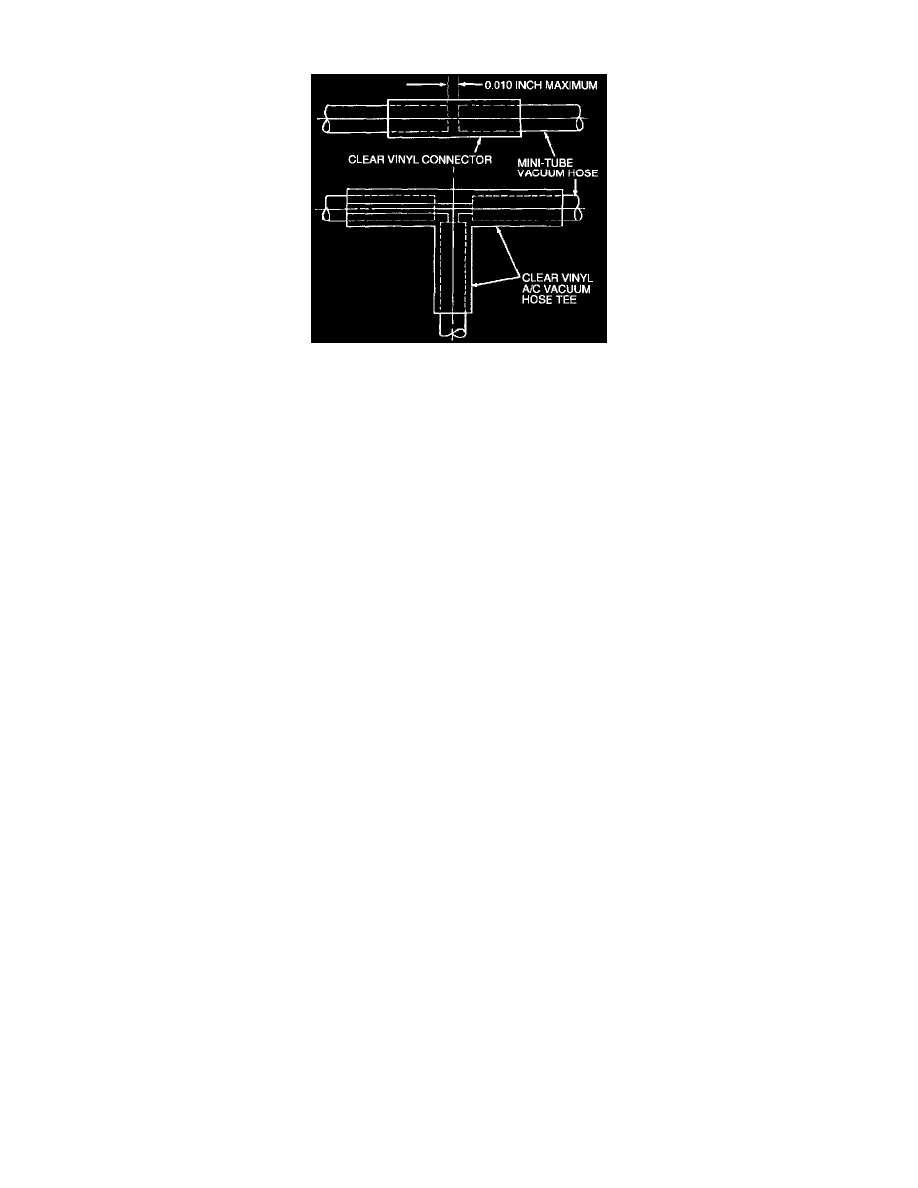Cougar/XR7 V8-4.6L VIN W (1997)

Vacuum Harness HVAC: Service and Repair
Mini-tube vacuum hoses are provided in the vacuum hose harness assemblies. They provide greater flexibility with less tendency to collapse and are less
susceptible to pinching. Service of damaged hoses is easily made using a short piece of standard 3 mm (0.125 inch) inner diameter vacuum hose and
inserting the cut ends of the mini-tube into the ends of the standard 3 mm (0.125 inch) inner diameter vacuum hose. The following illustrates an in-line
and tee connector installation.
1. Measure length of damaged area of the mini-tube vacuum hose.
2. Cut a piece of standard 3 mm (0.125 inch) inner diameter vacuum hose approximately 25 mm (1 inch) longer than damaged area of the mini-tube
vacuum hose.
3. Cut off the mini-tube vacuum hose on each side of damaged area.
4. Dip the mini-tube hose ends in commercially available paint thinner containing Methyl Ethyl Ketone. This solvent will seal the mini-tube in the
vacuum hose.
WARNING: READ THE WARNING INFORMATION ON THE PRODUCT LABEL.
5. Insert ends of the mini-tube vacuum hose approximately 9 mm (0.375 inch) into ends of standard 3 mm (0.125 inch) service vacuum hose section.
6. Shake service joint after assembly to make sure solvent is dispersed and vacuum line is not plugged.
7. Test system for a vacuum leak in service area using Rotunda Vacuum Tester 014-R1054 or equivalent.
